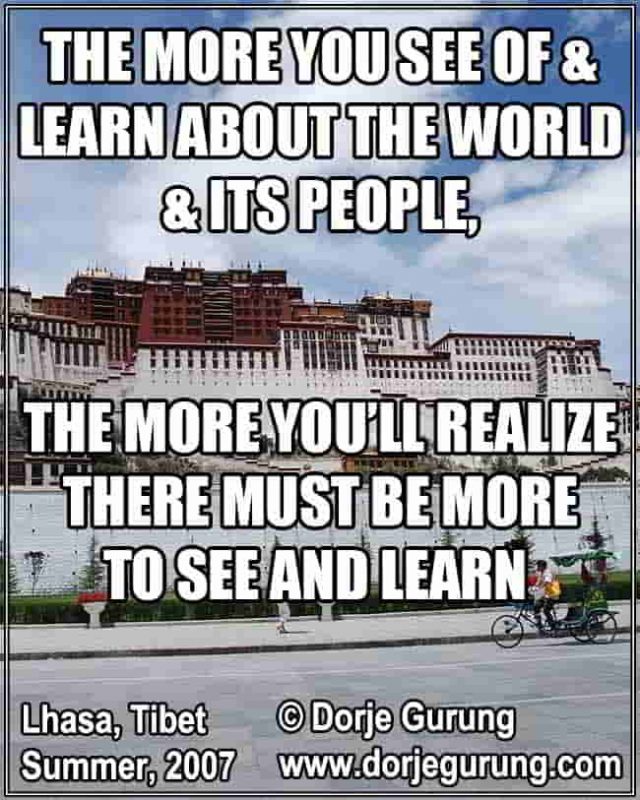
It’s true of course that the more you see of and learn about the world and its people, the more you’ll realize there must be more to see and learn.
In the process, you also learn more about yourself and who and what you represent etc. including how much you DON’T know about yourself, about your own people and your own place etc.
While living abroad, I realized not only how little I knew about my own (Tibetan) heritage and history, I also realized I knew very little about the history and sub-cultures of the other ethnic people of the country. The history I had been taught in school, for example, had been that of, and written pretty much exclusively by, the rulers — i.e. the so-called High Caste Hindus. The mainstream culture I had learned about and had followed in public anyway — referred to as “Nepali culture” — had actually been mostly that of the Hindus, of the so-called High Caste Hindus to be precise. It wasn’t until I was abroad that I realized how much my beliefs, awareness, attitudes and behaviors had been shaped — and CONSTRAINED — by them.
So, since returning to Nepal, I have been trying to learn as much about the OTHER people of the country — people of different ethnicity/caste. As a matter of fact, one of the things I did pretty early on in my time in Nepal was to invite myself to Bhai Tika (“Brother worship ceremony”) at a good Newar friend’s home. (When I was growing up in Nepal, my family pretended to celebrate it but not anymore!) During a visit to Tanahun, I had an alternative history lesson at a hill-top tea stall, to give another example!
When it comes to Nepali identity and heritage, a lot has changed since when I first left Nepal in 1988. Ethnic peoples of the country take considerably more pride in their cultural, social, linguistic and religious heritage, evidenced by the lack of inhibition in displaying and following them in public etc.
But sadly, I know there are still many in Nepal who still consider their sub-culture and history etc. as unimportant and not worth sharing and preserving, and even secondary to that of the so-called High-caste Hindu history, culture, systems etc.
What do you think?
(This a reproduction of a Feb. 22, 2018 Facebook post. It was also reproduced in Instagram on February 24, 2022.)
